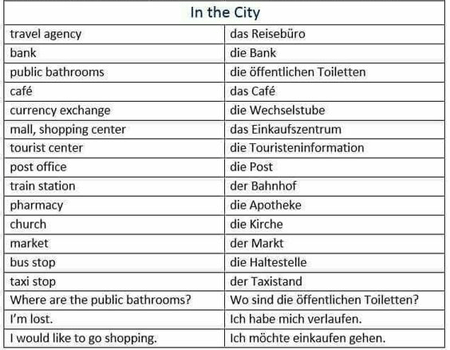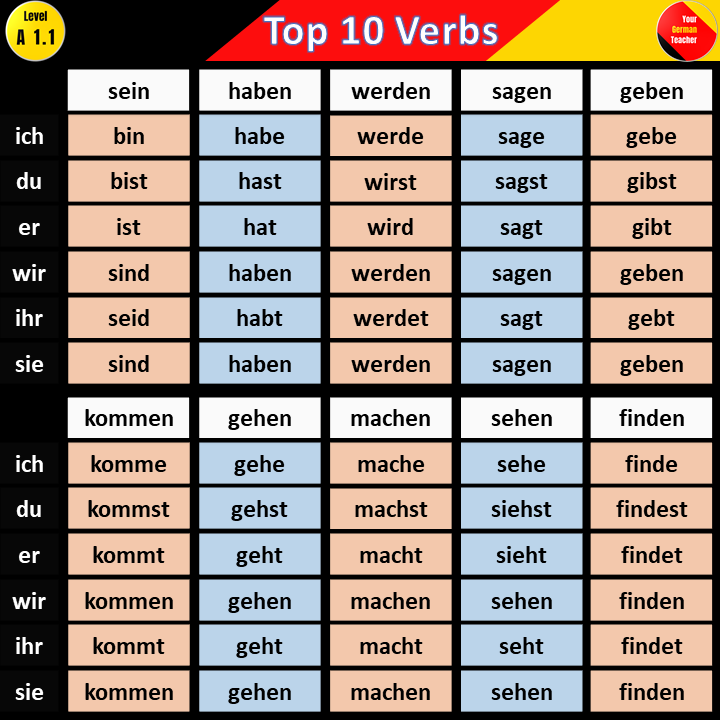

The German economy ranks number one in Europe and number four worldwide.
 Germany is the world’s second-largest exporter. There are many reasons why you should learn the German language – below we highlight 15 of those reasons: EARN This is because the German language is part of Germanic languages, a group of Indo-European languages, that shares plenty of similarities with other Germanic languages like English or Dutch. Chinese people will find it harder than an English native speaker to learn German. And if you feel confused about where to start, we’ve put together some tips in this article that will help you learn to speak German really fast. Having enough motivation and working hard towards your goal, is all it takes. Learning any language takes time and commitment. Well, no, learning German being hard is just a myth. You have been told the German language is really hard to learn, or maybe you just naturally got this feeling when you heard a native German speaker talking? The scary word above confirms your assumptions? But… Is learning to speak German hard? In the German language, this 63 character word referred to “law delegating beef label monitoring”.Īn EU regulation dropped it. Yes, that’s a real word in the German language, or at least it was until 2013. Superwetter: Super + Wetter: Great weather“Rindfleischetikettierungsueberwachungsaufgabenuebertragungsgesetz”. Hauptbahnhof: Haupt + Bahnof: Main train station. Zimmerservice: Zimmer + Service: Room service. Sprachschule: Sprache + Schule: Language school.
Germany is the world’s second-largest exporter. There are many reasons why you should learn the German language – below we highlight 15 of those reasons: EARN This is because the German language is part of Germanic languages, a group of Indo-European languages, that shares plenty of similarities with other Germanic languages like English or Dutch. Chinese people will find it harder than an English native speaker to learn German. And if you feel confused about where to start, we’ve put together some tips in this article that will help you learn to speak German really fast. Having enough motivation and working hard towards your goal, is all it takes. Learning any language takes time and commitment. Well, no, learning German being hard is just a myth. You have been told the German language is really hard to learn, or maybe you just naturally got this feeling when you heard a native German speaker talking? The scary word above confirms your assumptions? But… Is learning to speak German hard? In the German language, this 63 character word referred to “law delegating beef label monitoring”.Īn EU regulation dropped it. Yes, that’s a real word in the German language, or at least it was until 2013. Superwetter: Super + Wetter: Great weather“Rindfleischetikettierungsueberwachungsaufgabenuebertragungsgesetz”. Hauptbahnhof: Haupt + Bahnof: Main train station. Zimmerservice: Zimmer + Service: Room service. Sprachschule: Sprache + Schule: Language school.  Haustürschlüssel: Haus + Tür + Schlüssel (House + Door + Key): Front door key. Orangensaft: Orange + Saft (Orange + Juice): Orange juice. Trockenzeit: Trocken + Zeit (Dry + Time): Dry season. Waschmaschine: Wasch + Maschine (Wash + Machine): Washing machine. Staubsauger: Staub + Sauger (Dust + Vacuum): Vacuum cleaner. Flugzeug: Flug + Zeug (Flight + Staff): Airplane. Handschuh: Hand + Schuh (Hand + shoe): Glove. Here are a few compound German words to start learning. A compound word is formed when two words (or sometimes even more) are used together to create a new meaning. Nevertheless, German is known for its very long, compound words.
Haustürschlüssel: Haus + Tür + Schlüssel (House + Door + Key): Front door key. Orangensaft: Orange + Saft (Orange + Juice): Orange juice. Trockenzeit: Trocken + Zeit (Dry + Time): Dry season. Waschmaschine: Wasch + Maschine (Wash + Machine): Washing machine. Staubsauger: Staub + Sauger (Dust + Vacuum): Vacuum cleaner. Flugzeug: Flug + Zeug (Flight + Staff): Airplane. Handschuh: Hand + Schuh (Hand + shoe): Glove. Here are a few compound German words to start learning. A compound word is formed when two words (or sometimes even more) are used together to create a new meaning. Nevertheless, German is known for its very long, compound words. 
However, a recent analysis of the Dudenkorpus, an electronic collection of texts, counted no less than 17.4 million base forms (different words in uninflected form). Around the 2000s, the German language was estimated to have 300,000 to 400,000 words.








 0 kommentar(er)
0 kommentar(er)
